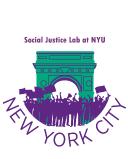Cognition
Why Is Conspiratorial Thinking More Popular on the Right?
Tom Edsall interviews Sander van der Linden, Costas Panagopoulos, and John Jost.
Posted October 21, 2021 Reviewed by Devon Frye
Thomas (Tom) Edsall of the New York Times recently interviewed Sander van der Linden, Costas Panagopoulos, and John T. Jost about their recent article with Flavio Azevedo, “The Paranoid Style in American Politics Revisited: An Ideological Asymmetry in Conspiratorial Thinking.”
Tom: “What are the demographic characteristics—age, income, race, education, gender, geography, etc.—of those most susceptible to conspiracy thinking?”
Sander: “Research consistently shows that the individuals who are most susceptible to conspiracy theories are predominantly (a) male, (b) white, (c) conservative, and (d) lower educated. Most are also politically active (online).
"There are exceptions to this profile; for example, some health-related conspiracy theories are popular among ethnic minorities, but the historical roots and motivations are very different (e.g., minorities were actually experimented on without their knowledge). Moreover, although conspiracy theories exist everywhere in the world, international comparisons find that endorsement is exceptionally high in the United States. This dates back to Hofstadter’s paranoid style we describe in the paper.
Tom: “You argue that conspiracy thinking is more common on the right while others—in “The 2020 presidential election and beliefs about fraud: Continuity or change?”—argue that such thinking is found in roughly equal amounts on both sides of the ideological and partisan aisles. What is the source of this difference: methodologies, statistical interpretations, whatever?”
Sander: “The source of this difference is both theoretical and methodological. There is a rich history of research that points to stable psychological differences between conservatives and liberals. Many of these differences (e.g., preference for certainty, status quo) orient conservatives more in the direction of conspiratorial reasoning than liberals.
"There is also pervasive false equivalence reasoning in the literature: the fact that both liberals and conservatives have the capacity to embrace conspiracy theories does not mean that they do so with equal intensity. For example, conspiracy theories about Russian tampering of the vote tallies do not have the same consequences for society as denial of global warming.
"Methodologically, prior research has also confounded measures of ideology with the content of the conspiracy theories themselves. For example, a typical study would ask whether you believe in a selective set of, let’s say, 10 specific conspiracy theories. These items are often not balanced in terms of their ideological content, so some scales will include more liberal conspiracy theories whereas others will include more conservative-leaning conspiracy theories.
"In our research, we decided to improve upon this issue by using newer measures that tap into underlying conspiratorial worldviews without referencing any specific conspiracy theory at all. In other words, unlike the 2020 election example above, we would ask whether someone believes that events ‘which superficially seem to lack a connection are often the result of secret activities’ and so on. We find that conservatives are significantly and substantially more likely to endorse such thinking patterns than liberals, partly because they score higher on measures of paranoia and generalized distrust of mainstream sources and institutions.”
John: “Yes, the research literature in political science has been slow to pick up on the psychological differences between leftists and rightists in the U.S. with respect to uncertainty avoidance; intolerance of ambiguity; personal needs for order and structure; need for cognitive closure; integrative complexity; cognitive and perceptual rigidity; dogmatism; closed-mindedness; intuitive vs. analytic thinking; need for cognition; cognitive reflection; intellectual humility; judgmental overconfidence; self-deception; susceptibility to meaningless but seemingly profound information, and so on. All of these differences are documented extensively in this book: Left & Right: The Psychological Significance of a Political Distinction.”
Costas: “The picture that seems to be emerging with each passing study suggests psychological differences rooted in political ideology are stable and robust. Conservatives differ considerably from liberals on a whole range of dimensions, including—in addition to the above—conformity, desire for shared reality, misinformation susceptibility and spread, and conspiracy thinking. The ideological asymmetries are often too stark and robust to be dismissed as statistical artifacts. As the evidence accumulates, it seems liberals and conservatives are simply not cut from the same psychological cloth. Developments in social media and the fractured media infrastructure more generally have likely exacerbated these differences by calcifying views in respective echo chambers, or at least brought them out into the open.”
Tom: “Is conspiracy thinking a crucial ingredient in a willingness to support political violence?”
Sander: “It is often an ingredient. A striking example is of course the 2021 Capitol attack by Trump supporters, at least partly fueled by conspiracy theories and misinformation about vote counts and the election process. Another is the fact that people have set phone masks ablaze in the UK due to belief in the false conspiracy theory that 5G radiation causes or exacerbates the coronavirus. Studies have actually found that endorsement of conspiracy theories correlates with violent intentions.”
John: “Fear, distrust, and suspicion can certainly lead to anger and aggression, which sometimes leads to political violence, as we saw during the Capitol riots.”
Costas: “Conspiratorial beliefs have the capacity to motivate political violence, especially when those who espouse those views feel hopeless or believe traditional avenues to pursue their objectives are too slow, unpredictable or futile.”
Tom: “I would welcome any other thoughts you have on this general subject and pointers to relevant work by you and others.”
Sander: “It is important to clarify that my position is not that liberals are somehow impervious to conspiracy theories. What I am saying is that the extent and magnitude of endorsement is strongly asymmetric so that extreme conservatives tend to be much more conspiratorial in their reasoning than extreme liberals. This is explained, at least in part, by growing distrust amongst conservatives which dates back to a long history of paranoia in the U.S. political system about other groups. I think this nuance often gets lost when people say ‘both liberals and conservatives have political biases.’ This may be true, but the extent of the bias need not be the same, and importantly, the nature of the bias matters too, as the consequences for society might be radically different.”
John: “That’s right. Leftists and rightists are, for the most part, running the same hardware, so to speak, but the ideological software is very different at this point in history and in many previous periods as well. So there are both similarities and differences that may be attenuated or accentuated by the times.”
Costas: “In other work, Sander, Aaron Weinschenk, and I show that those who opposed traditional election norms like support for a peaceful transition of power and willingness to accept election results in 2020 are significantly more prone to false consensus effects about how widespread their views are. In other words, those who oppose these norms perceive more Americans agree with them than is actually so. These misperceptions are more pronounced among conservatives and Republicans and may help embolden political violence, disorder or other norm-deviant attitudes and behavior.”
Tom: “One additional question: Do those who believe Trump won the 2020 election fit your definition of conspiracy thinkers?”
Costas: “Insofar as their rationale for believing Trump won the election is based on discredited beliefs about election fraud or related interference, I would view these individuals as conspiracy thinkers.”
References
van der Linden, S., Panagopoulos, C., Azevedo, F., & Jost, J.T. (2021). The paranoid style in American politics revisited: An ideological asymmetry in conspiratorial thinking. Political Psychology, 42, 23-51. https://onlinelibrary.wiley.com/doi/pdf/10.1111/pops.12681




